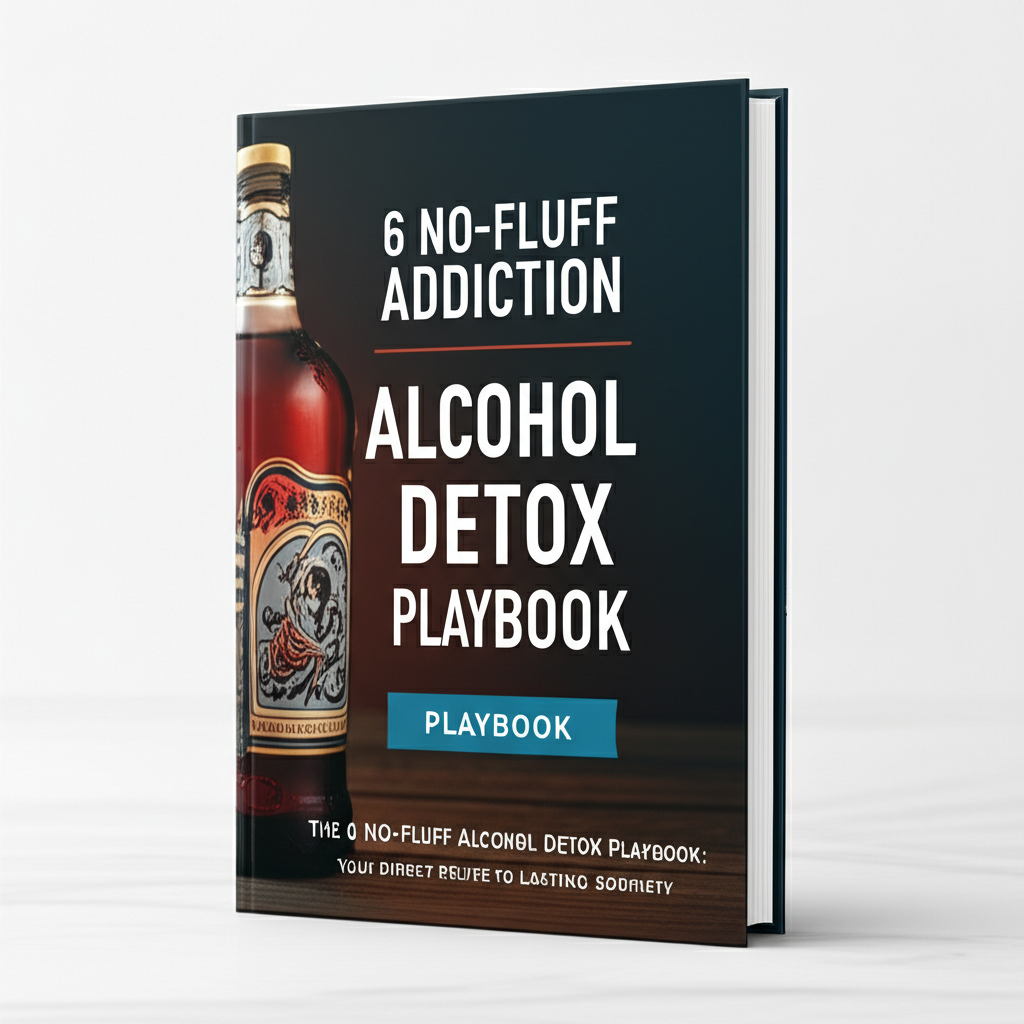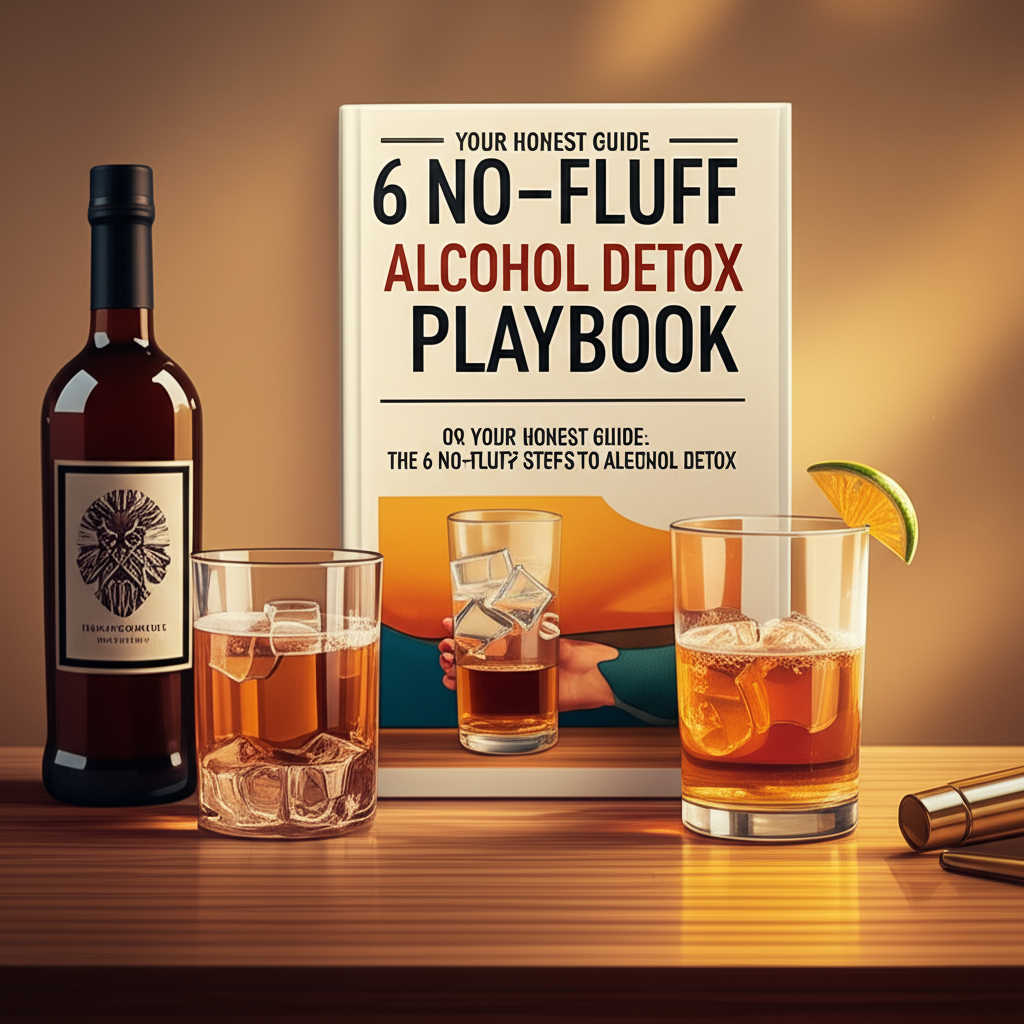The idea of a "quick fix" for anything can be incredibly appealing, especially when you’re grappling with the overwhelming challenge of alcohol addiction. The thought of rapidly shedding the physical dependence and moving towards a healthier, sober life is a powerful motivator. However, when it comes to alcohol detox, "quick" doesn’t necessarily mean "easy," "safe," or "unsupervised."
Attempting to detox from alcohol, particularly if you’ve developed a significant physical dependence, is a serious medical undertaking that carries substantial risks. It’s not a journey to embark on lightly, nor is it a DIY project for most individuals. Instead of providing a "quick detox checklist" for doing it yourself, this article offers a comprehensive readiness checklist – vital questions to ask yourself before you even consider starting the detox process. These checklists will help you assess your situation, understand the risks, and guide you towards the safest, most effective path to sobriety, which almost always involves professional medical supervision.
Our aim is to empower you with knowledge, debunk dangerous myths, and provide a clear roadmap to ensure your detox is not only successful but, more importantly, safe.
The Reality of Alcohol Detox: More Than Just Quitting
Before diving into any checklists, it’s crucial to understand what alcohol detox truly entails. It’s far more complex than simply deciding to stop drinking. When someone drinks heavily and consistently over time, their brain and body adapt to the constant presence of alcohol. Alcohol acts as a depressant on the central nervous system, slowing down brain activity. To compensate, the brain begins to overproduce excitatory neurotransmitters.
When alcohol is suddenly removed, the brain remains in this overstimulated, hyper-excitable state, leading to a cascade of uncomfortable and potentially dangerous symptoms known as Alcohol Withdrawal Syndrome (AWS).
Why Detox Isn’t a DIY Project for Everyone
The severity of AWS varies greatly depending on factors like the duration and quantity of alcohol consumed, the individual’s overall health, and any co-occurring mental or physical conditions. For some, withdrawal might be mild and uncomfortable. For others, it can be life-threatening.
Attempting to detox alone, especially with a history of heavy drinking or previous severe withdrawal, can lead to:
- Seizures: Uncontrolled electrical activity in the brain.
- Delirium Tremens (DTs): A severe form of withdrawal characterized by confusion, rapid heart rate, high fever, profuse sweating, hallucinations, and severe agitation. DTs can be fatal without immediate medical intervention.
- Cardiovascular issues: Irregular heartbeats, high blood pressure, and increased risk of heart attack or stroke.
- Dehydration and electrolyte imbalances: Which can exacerbate other symptoms and lead to further complications.
- Accidental injury: Due to disorientation, tremors, or falls during withdrawal.
This is why a medical professional, ideally in a specialized detox facility, is often the safest and most effective choice. They can monitor your vital signs, manage symptoms, and intervene quickly if complications arise.
Understanding Alcohol Withdrawal Syndrome (AWS)
AWS symptoms typically begin within 6-24 hours after the last drink, peak within 24-72 hours, and can last for several days or even weeks in some cases. The symptoms can range from mild to severe:
-
Mild Symptoms:
- Tremors (shaking hands)
- Anxiety and agitation
- Headache
- Nausea and vomiting
- Insomnia
- Increased heart rate and blood pressure
- Sweating
-
Moderate Symptoms:
- Intensification of mild symptoms
- Disorientation
- Mild hallucinations (auditory, visual, or tactile)
- Seizures (often within 12-48 hours)
-
Severe Symptoms (Delirium Tremens – DTs):
- Profound confusion and disorientation
- Severe agitation
- Fever
- Profound sweating
- Rapid and irregular heart rate
- Severe tremors
- Hallucinations (often vivid and terrifying)
- Seizures
- Potentially fatal if untreated
Understanding these risks is the first step toward making informed decisions about your detox journey.
Your 3 Quick "Detox Readiness" Checklists (Not DIY Detox Steps!)
These checklists are designed to help you honestly evaluate your situation and determine the safest path forward. They are questions to answer before you even consider stopping drinking, guiding you towards the appropriate level of professional support.
Checklist 1: Assessing Your Risk Level for Severe Withdrawal
This checklist helps you identify factors that increase your risk of experiencing dangerous or life-threatening withdrawal symptoms.
- How much alcohol do you typically consume daily, and for how long have you been drinking at this level?
- Why it matters: The higher the quantity and longer the duration of heavy drinking, the greater your physical dependence and the higher your risk of severe withdrawal. Chronic heavy drinking is a significant red flag.
- Have you experienced alcohol withdrawal before? If so, how severe were the symptoms? (e.g., tremors, hallucinations, seizures, DTs)
- Why it matters: A history of severe withdrawal symptoms (especially seizures or DTs) significantly increases your risk of experiencing them again, and they can be even more severe with each subsequent detox attempt (a phenomenon known as "kindling").
- Do you have any co-occurring medical conditions (e.g., heart disease, liver disease, diabetes, high blood pressure, epilepsy)?
- Why it matters: Pre-existing health conditions can be exacerbated by alcohol withdrawal and complicate treatment. For example, individuals with heart conditions are at higher risk for cardiac events during detox.
- Are you currently taking any prescription medications (e.g., for anxiety, depression, pain, sleep)?
- Why it matters: Some medications can interact dangerously with alcohol withdrawal or with medications used to manage withdrawal symptoms. It’s crucial for medical professionals to be aware of all your current medications.
- Do you have any co-occurring mental health conditions (e.g., anxiety disorders, depression, PTSD, bipolar disorder)?
- Why it matters: Alcohol withdrawal can intensify mental health symptoms, making detox more challenging and potentially leading to a mental health crisis. These conditions also require integrated treatment during recovery.
- What is your age?
- Why it matters: Older individuals may be more susceptible to severe withdrawal symptoms and complications due to age-related physiological changes and potential co-existing health issues.
If you answered "yes" to any of the questions about previous severe withdrawal, significant daily consumption, or co-occurring medical/mental health conditions, you are at high risk for dangerous withdrawal and MUST seek medical supervision for detox.
Checklist 2: Evaluating Your Support System & Environment
Even with medical supervision, having a supportive environment and a plan for managing the emotional and practical aspects of detox is crucial.
- Who in your life knows about your struggles with alcohol and is willing to support your recovery?
- Why it matters: Isolation can be detrimental during detox and recovery. Having trusted individuals who understand and can provide emotional or practical support is invaluable. This could be family, friends, or a sponsor.
- Do you have a safe, stable, and trigger-free environment where you can undergo detox (if medically deemed safe for outpatient detox)?
- Why it matters: Being in an environment where alcohol is readily available or where you face significant stressors or triggers can undermine your efforts. A calm, secure space is essential.
- Are there any major stressors or responsibilities that you need to address or delegate before starting detox (e.g., childcare, work commitments, financial obligations)?
- Why it matters: Reducing external pressures allows you to focus fully on your detox and recovery. Planning for these practicalities beforehand minimizes distractions and potential relapse triggers.
- Have you identified potential triggers in your daily life and thought about strategies to avoid or cope with them during and after detox?
- Why it matters: Triggers (people, places, emotions, situations) can lead to cravings and relapse. Proactive identification and planning are key to long-term sobriety.
- Are you prepared to be honest and open with medical professionals and your support system about your drinking habits and any underlying issues?
- Why it matters: Transparency is vital for effective treatment. Medical teams and support networks can only help you fully if they have a complete picture of your situation.
A strong support system and a prepared environment significantly improve your chances of a successful and less stressful detox and recovery journey.
Checklist 3: Preparing for Professional Intervention & Resources
This is perhaps the most critical checklist, as it guides you towards the professional help necessary for a safe detox.
- Have you consulted with a medical doctor (e.g., your primary care physician) about your desire to stop drinking and the potential detox process?
- Why it matters: Your doctor can assess your overall health, review your medical history, and advise on the safest detox option for you. They can also provide referrals to specialists or detox facilities.
- Do you have an emergency plan in place, including knowing where the nearest emergency room is and having someone who can take you there if needed?
- Why it matters: Even with careful planning, unexpected complications can arise. Knowing where to go and how to get there quickly can be life-saving.
- Have you researched local medical detox facilities or inpatient rehabilitation centers that offer medically supervised detox?
- Why it matters: These facilities are specifically equipped to handle alcohol withdrawal safely. They provide 24/7 medical supervision, medication management, and a supportive environment.
- Are you aware of national helplines or online resources that can provide immediate guidance and connect you with treatment options (e.g., SAMHSA National Helpline, local addiction hotlines)?
- Why it matters: These resources are often available 24/7 and can be a lifeline for immediate support and information, especially if you’re feeling overwhelmed or unsure where to start.
- Are you open to discussing medication options with a doctor to manage withdrawal symptoms safely and comfortably?
- Why it matters: Medications (like benzodiazepines) are highly effective in reducing withdrawal severity, preventing seizures, and minimizing discomfort, making the detox process much safer and more tolerable.
- Have you considered what your plan for recovery will be after detox (e.g., therapy, support groups like AA/NA, ongoing medical care)?
- Why it matters: Detox is just the first step. Long-term sobriety requires ongoing support and strategies to address the underlying causes of addiction and prevent relapse. Planning for this early on sets you up for lasting success.
Answering "yes" to these questions demonstrates a proactive and responsible approach to your health and recovery. It indicates you’re ready to seek the professional help you deserve.
What to Expect During Medically Supervised Detox
If, after going through these checklists, you determine that medical supervision is the safest route (which is often the case), here’s a general overview of what to expect:
Common Withdrawal Symptoms
Under medical supervision, staff will be trained to recognize and treat withdrawal symptoms as they emerge. You might still experience some of the mild to moderate symptoms listed earlier (tremors, anxiety, nausea, insomnia), but they will be managed to prevent escalation. Medications will be administered to alleviate discomfort and prevent severe complications.
The Role of Medication in Detox
Medications are a cornerstone of safe alcohol detox. The most commonly used class of drugs are benzodiazepines (e.g., diazepam, lorazepam, chlordiazepoxide). These medications work by mimicking some of alcohol’s effects on the brain, thereby calming the overstimulated central nervous system. They help:
- Reduce anxiety and agitation.
- Control tremors.
- Prevent seizures.
- Improve sleep.
The medical team will carefully titrate the dosage based on your symptoms and gradually taper you off the medication as your body stabilizes. Other medications may be used to address specific symptoms like nausea or high blood pressure.
The Importance of Post-Detox Planning
Medical detox is a crucial first step, but it’s rarely a standalone solution. Once your body is physically clear of alcohol, the real work of recovery begins. A comprehensive post-detox plan typically includes:
- Therapy: Individual and group therapy sessions to explore the root causes of addiction, develop coping mechanisms, and address co-occurring mental health issues.
- Support Groups: Participation in 12-step programs (like Alcoholics Anonymous) or other peer support groups provides a community of understanding and accountability.
- Aftercare Programs: Ongoing support, counseling, and relapse prevention strategies to help you navigate the challenges of long-term sobriety.
- Medication-Assisted Treatment (MAT): For some, medications like naltrexone, acamprosate, or disulfiram can be helpful in reducing cravings and preventing relapse in the long term.
Debunking "Quick Fix" Detox Myths
The internet is rife with misinformation about "quick" or "natural" detox methods. It’s vital to separate fact from fiction.
The Dangers of Unsupervised Detox
As discussed, attempting to detox from significant alcohol dependence without medical supervision is incredibly risky. Stories of individuals trying to tough it out at home, only to suffer severe seizures, hallucinations, or even death, are unfortunately common. Your brain and body need careful management during this critical period.
Why "Natural" Detox Isn’t Always Safe
While a healthy diet, hydration, and exercise are beneficial for overall well-being and recovery, they are not substitutes for medical intervention during acute alcohol withdrawal. No amount of juice cleanses, herbal remedies, or vitamins can prevent seizures or delirium tremens in someone with severe physical dependence. These "natural" methods lack the ability to calm the central nervous system in the way that medically prescribed benzodiazepines can, and relying solely on them can have fatal consequences.
Conclusion: Your Journey to Safe Sobriety Starts Now
Taking the first step towards sobriety is a monumental act of courage. The allure of a "quick addiction alcohol detox checklist" is understandable – you want to feel better, faster. However, true speed and effectiveness in detox come from a well-planned, medically informed approach that prioritizes your safety above all else.
These three readiness checklists are not meant to discourage you, but rather to empower you with the knowledge to make the safest and most effective choices for your health. By honestly assessing your risks, evaluating your support system, and proactively preparing for professional intervention, you lay a solid foundation for a successful detox and a sustainable recovery.
Remember, you don’t have to face this alone. There are dedicated professionals and supportive communities ready to guide you through every step. Take these checklists, reach out for help, and embark on your journey to a healthier, alcohol-free life with confidence and safety as your guiding principles. Your future self will thank you.








